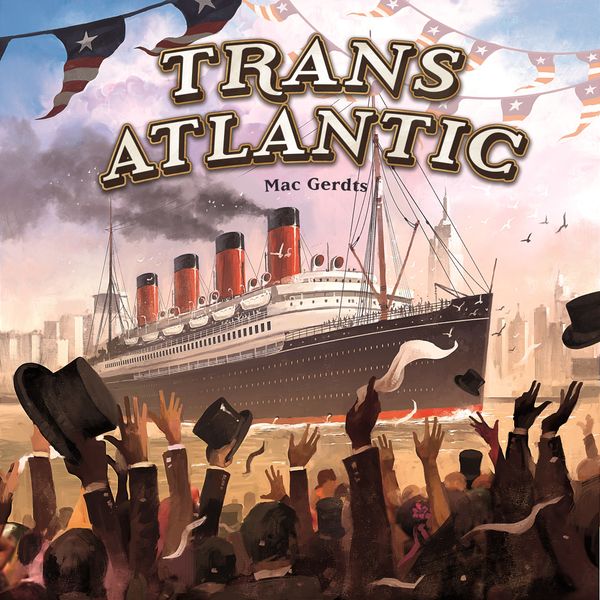Transatlantic (2017) Board Game
Transatlantic, designed by Mac Gerdts, was released in 2017 by PD-Verlag. It is a strategic board game that combines elements of economic, industry/manufacturing, nautical, and transportation themes. The game has been well-received by players for its engaging gameplay and unique mechanics.
Game Components of Transatlantic
How To Setup Transatlantic
To set up Transatlantic, each player starts with a sail ship and one steam ship, along with a player board and a starting hand of 7 action cards. The game area is divided into different sea regions where ships will be deployed. Players also receive goods tokens that match the colors of the ship cards. The supply of new action cards and ship cards is prepared, and the trade house tokens are placed within reach of all players.
Gameplay Mechanics and Game Objective
Player Experience
Playing Transatlantic involves making strategic and tactical decisions. Players must decide when to play which card, how to capitalize on the situation in different sea regions, and whether to specialize in certain goods tokens or diversify their shipping operations. The game is known for its quick turns and meaningful decisions, making it engaging without feeling overly lengthy.
Pros
Cons
Personal Thoughts on Transatlantic
Transatlantic is ideal for fans of economic and transportation-themed games, particularly those who enjoy hand management mechanics. While it has some similarities to Concordia, it stands out with its unique steamship theme and historical depth. However, it may not be the best fit for players seeking a deeply immersive theme or those who are frustrated by poor rulebook quality and graphical errors. If you enjoy strategic card play and the historical context of steamships, Transatlantic is definitely worth considering.
We are supported by our audience. When you purchase through links on our site, we may earn an affiliate commission, at no extra cost for you. Learn more.

